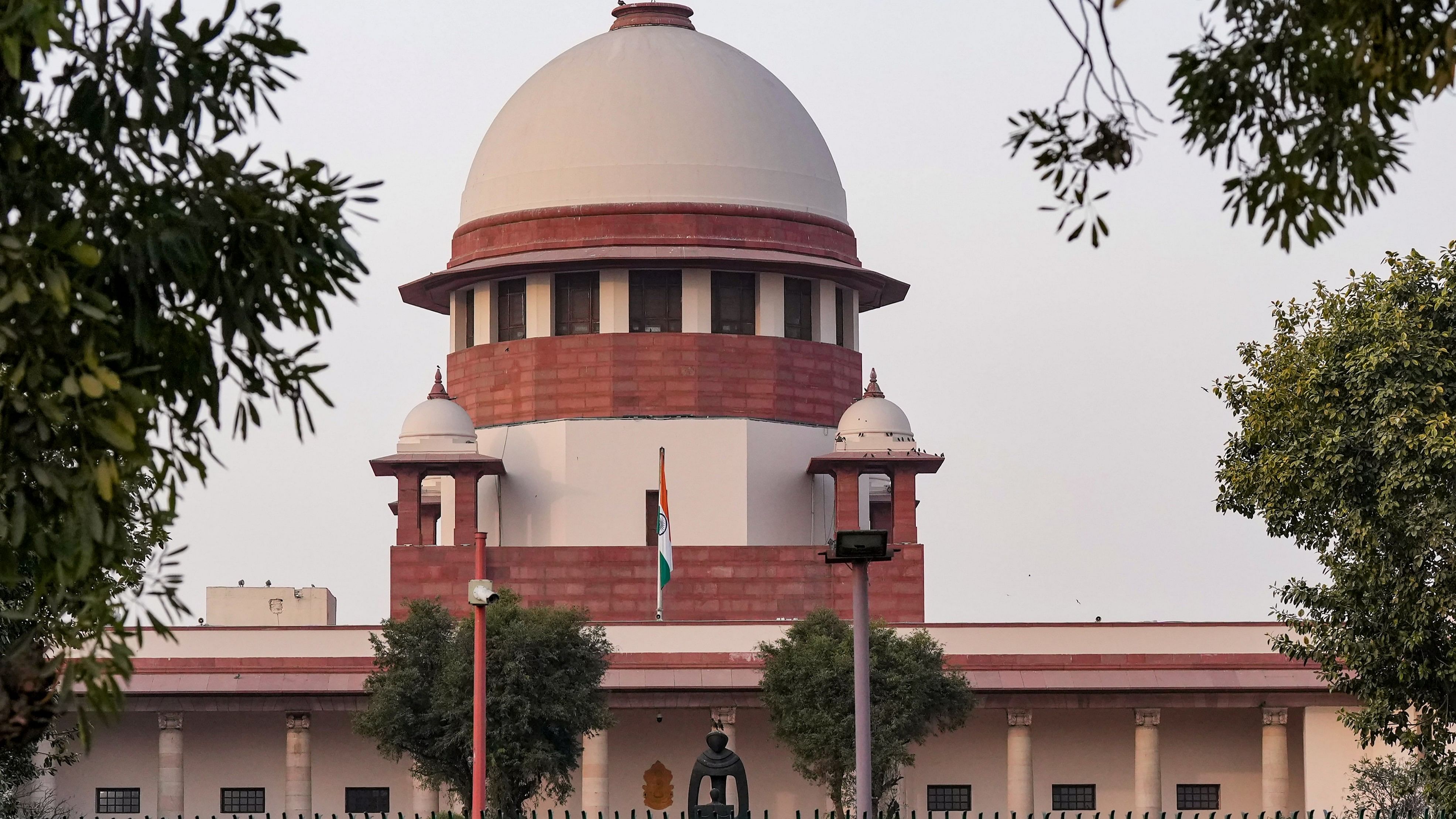
Supreme Court of India, in New Delhi
Credit: PTI Photo
New Delhi: The Supreme Court on Monday asked social media intermediaries to observe due diligence, which included not only the removal of child pornographic content but also making an immediate report of such content to the concerned police units in the manner specified under the POCSO Act and the Rules.
"We are of the considered view, that an intermediary cannot claim exemption from the liability under Section 79 of the IT Act for any third-party information, data, or communication link made available or hosted by it, unless due diligence is conducted by it and compliance is made of these provisions of the POCSO Act," a bench of Chief Justice of India D Y Chandrachud and Justice J B Pardiwala said.
The court also said the social media intermediaries in addition to reporting the commission or the likely apprehension of commission of any offence under POCSO to the National Centre for Missing & Exploited Children (NCMEC) is also obligated to report the same to authorities specified under Section 19 of POCSO i.e., the Special Juvenile Police Unit (SJPU) or the local police.
The court said in order to avail "safe harbour" protection, the intermediary foremost must not in any manner be involved in either initiating the transmission, or the receipt or the modification of the third-party data or information in question. It further is required to observe due diligence while discharging his duties under the IT Act and to also observe such other guidelines as the Central Government may prescribe in its behalf.
"The protection under Section 79 lapses and does not apply if the intermediary has conspired or abetted or aided or induced, whether by threats or promise or otherwise in the commission of the unlawful act, or if upon receiving “actual knowledge”, or if the intermediary fails to expeditiously remove or disable access to that material on that resource without vitiating the evidence in any manner," the bench said.
The court pointed out Rule 11 of the Protection of Children from Sexual Offences Rules, 2020 places an obligation on the intermediaries to not only report offences under POCSO but also to hand over the necessary material including the source from which such material may have originated to the Special Juvenile Police Unit or the local police, or the cyber-crime portal.
As per an MOU between the National Crime Records Bureau (NCRB) under the Ministry of Home Affairs (MHA) and the National Centre for Missing & Exploited Children (NCMEC), a US based NGO, all social media intermediaries are required to report cases of child abuse and exploitation to the NCMEC, which in turn reports these cases to the NCRB and the NCRB forwards this to the concerned State authorities in India through the national cybercrime reporting portal.
The bench said it has been brought to the notice of this court that social media intermediaries do not report such cases of child abuse and exploitation to the local authorities specified under POCSO and rather only comply with the requirements stipulated in the MOU.
"In view of the overriding effect of the POCSO Act and the rules thereunder, merely because an intermediary is in compliance of the requirements specified under Section 79 of the IT Act, will not absolve it of any liability under the POCSO, unless it duly complies with the requirements and procedure set out under it, particularly Section 20 of POCSO Act and Rule 11 of the POCSO Rules," the bench said.
